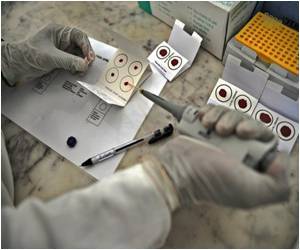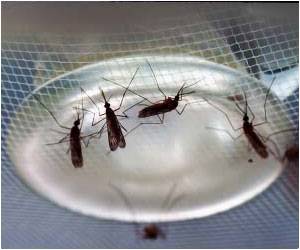A unique member of the signalling proteins, essential for the development of the malaria parasite has been disabled by scientists.

The finding could help in the design of new drugs to arrest the spread of this killer disease.
SHLP1 is critical to the cellular development of the malaria parasite. It can be found at every stage in the lifecycle of the malaria parasite and for the first time experts led by The University of Nottingham have analysed their biological function.
Dr Rita Tewari and her team in the Centre for Genetics and Genomics in the School of Biology have spent three years studying the phosphatase proteins that are important building blocks in the life cycle of the malaria parasite.
"SHLP1 is absent in humans and can be explored as an excellent target for malaria transmission control. Prevention of malaria transmission to and from the mosquito is vital in order to stop the devastating spread of malaria. Targeting SHLP1 could be an important step to achieve this goal," r Tewari said.
Dr Tewari's latest research has focused on the ancient bacterial Shewanella-like protein phosphatase (SHLP1) which is found only in bacteria, fungi, protists (organisms which paved the way for the evolution of early plants, animals and fungi) and plants.
Advertisement
It does this every time the mosquito bites. Removing this enzyme causes defects in structures vital for invading the mosquito gut - effectively stopping the mosquito from passing the disease on to another victim.
Advertisement
The findings of study have been published in the journal Cell Reports.
Source-ANI















